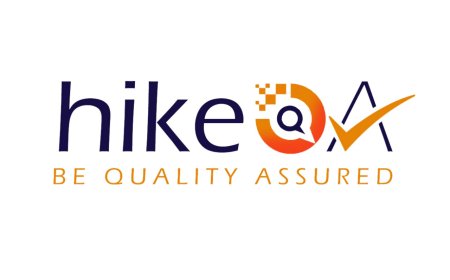Why North American SMEs Prefer Local Dynamics 365 Partners Over Offshore Teams
This article explores the compelling factors driving North American SMEs to favor local Dynamics 365 partners over offshore alternatives, particularly in the context of reliability, compliance, communication, and strategic alignment.

Introduction
In todays fast-paced digital economy, small and medium-sized enterprises (SMEs) in North America are increasingly leveraging advanced ERP and CRM platforms like Microsoft Dynamics 365 to stay competitive. The success of any Dynamics 365 deployment, however, often hinges not just on the software itself but on choosing the right Dynamics implementation partner. While offshore implementation teams have long been favored for their lower costs, a growing number of North American SMEs are choosing local Dynamics 365 partners insteadand for good reason.
This article explores the compelling factors driving North American SMEs to favor local Dynamics 365 partners over offshore alternatives, particularly in the context of reliability, compliance, communication, and strategic alignment.
1. Time Zone Compatibility Enhances Collaboration
One of the most immediate advantages local partners offer is time zone alignment. SMEs typically operate under tight timelines and need real-time collaboration, whether its for troubleshooting, live demos, or integration testing.
With offshore teams, overlapping work hours are often limited to just a few hours a dayif any. This gap can delay issue resolution and extend project timelines. In contrast, a local Dynamics implementation partner can respond quickly, often within minutes or hours, which is critical for agile project management and iterative development.
2. Understanding Local Business Environment and Regulations
Local Dynamics partners have a deeper understanding of the North American business environment, including:
-
Tax compliance (such as U.S. sales tax and Canadian GST/HST)
-
Labor and payroll laws
-
Data privacy regulations like GDPR, CCPA, or PIPEDA
-
Financial reporting standards (GAAP vs. IFRS)
Offshore teams may not be fully equipped to navigate these regulatory frameworks, increasing the risk of compliance violations or incorrect configurations. Local partners inherently understand these dynamics and can tailor your Dynamics 365 system to comply with both federal and regional laws, avoiding costly errors.
3. Cultural and Linguistic Alignment
Although technology is global, culture still plays a significant role in collaboration and understanding client expectations. A North American Dynamics implementation partner shares the same language nuances, business etiquette, and industry-specific jargon as their SME clients.
This cultural alignment ensures better understanding of requirements, smoother communication, and fewer misunderstandings during critical stages like requirement gathering, user acceptance testing, and go-live training. Offshore partners, while skilled technically, may sometimes miss the mark on user experience and industry context due to cultural and communication gaps.
4. Onsite Support and Face-to-Face Engagement
While remote work and virtual collaboration tools have gained traction, there are scenarios where onsite support becomes crucial. Whether its during stakeholder meetings, systems integration testing, or training sessions, having a partner who can physically be on-site adds immense value.
Local Dynamics 365 partners can visit client offices, lead workshops, and interact directly with department heads. This physical presence fosters trust and accountability. Offshore teams usually cannot provide this level of service, which can leave clients feeling disconnected or unsupported during high-stakes phases of the implementation.
5. Data Security and Intellectual Property Protection
North American SMEs often operate in regulated industries such as healthcare, finance, and government contracting. These sectors demand strict adherence to data residency, security protocols, and intellectual property (IP) protections.
Partnering with an offshore team may introduce risks due to varying levels of data governance and limited legal recourse in the event of a breach or misuse. A local Dynamics implementation partner, bound by North American laws, offers higher accountability, traceability, and familiarity with industry-specific compliance such as HIPAA or SOC 2.
6. Faster Issue Resolution and Support Turnaround
One of the key drivers for selecting a local partner is the speed at which issues are addressed. Local Dynamics 365 partners typically offer SLAs tailored to North American working hours and can rapidly mobilize teams to address post-deployment bugs or enhancement requests.
Offshore teams, despite having strong technical capabilities, may struggle with time delays, language barriers, or differing ticketing systems. In contrast, local partners are often just a call or email away, ensuring minimal disruption to business continuity.
7. Alignment with Local Market Trends and Industry Standards
North American SMEs operate in a highly competitive and evolving market. From the rise of e-commerce integrations to the need for AI-powered customer insights, staying aligned with the latest technological trends is vital.
Local Dynamics implementation partners are often early adopters of Microsoft updates, localizing new features to suit the needs of U.S. and Canadian businesses. They attend regional Microsoft events, collaborate with local ISVs (Independent Software Vendors), and continuously enhance their solutions based on real-time market feedbackadvantages offshore providers rarely match.
8. Customization and Flexibility Tailored to North American SMEs
No two SMEs are alike. A successful implementation of Dynamics 365 requires tailoring features like workflows, dashboards, and reporting templates to a companys specific operations. Local partners are more adept at capturing this nuance due to their proximity and regular interactions with clients.
They can quickly adapt the implementation strategy based on new business requirements, growth projections, or sudden regulatory changes. Offshore teams, on the other hand, often follow a rigid scope and may require time-consuming change requests for even minor adjustments.
9. Ongoing Training and Change Management Support
Implementing a robust ERP or CRM like Dynamics 365 isnt just about technologyits about people. Change management plays a critical role in ensuring employees adopt the system effectively. North American Dynamics implementation partners often include training and change management as part of their core services.
They deliver customized training modules, conduct onsite sessions, and provide ongoing support post-implementation. Their proximity allows for real-time feedback collection and tailored responses that drive adoption, unlike offshore teams that may lack visibility into daily user challenges.
10. Support for Hybrid and Cloud-Only Models
As more SMEs embrace hybrid cloud and cloud-only models, local partners are well-positioned to offer tailored cloud migration strategies using Microsoft Azure. They understand infrastructure constraints, compliance challenges, and regional preferences for cloud data hosting.
Local Dynamics implementation partners work closely with cloud solution providers, hardware vendors, and cybersecurity firms within the region, creating a robust support ecosystem. This level of integration and cooperation is rarely possible with offshore partners operating in disconnected environments.
Final Thoughts
While offshore implementation teams may offer initial cost savings, North American SMEs are realizing that the true value lies in strategic partnership, cultural compatibility, and local expertise. A local Dynamics implementation partner brings not only technical proficiency but also an understanding of the regional business climate, legal frameworks, and end-user behavior.
From faster support to stronger compliance, and from face-to-face engagement to market alignment, local Dynamics 365 partners offer a full-spectrum solution that offshore providers often cant match. For North American SMEs aiming for sustainable digital transformation, the local advantage is more than a preferenceits a strategic imperative.











































